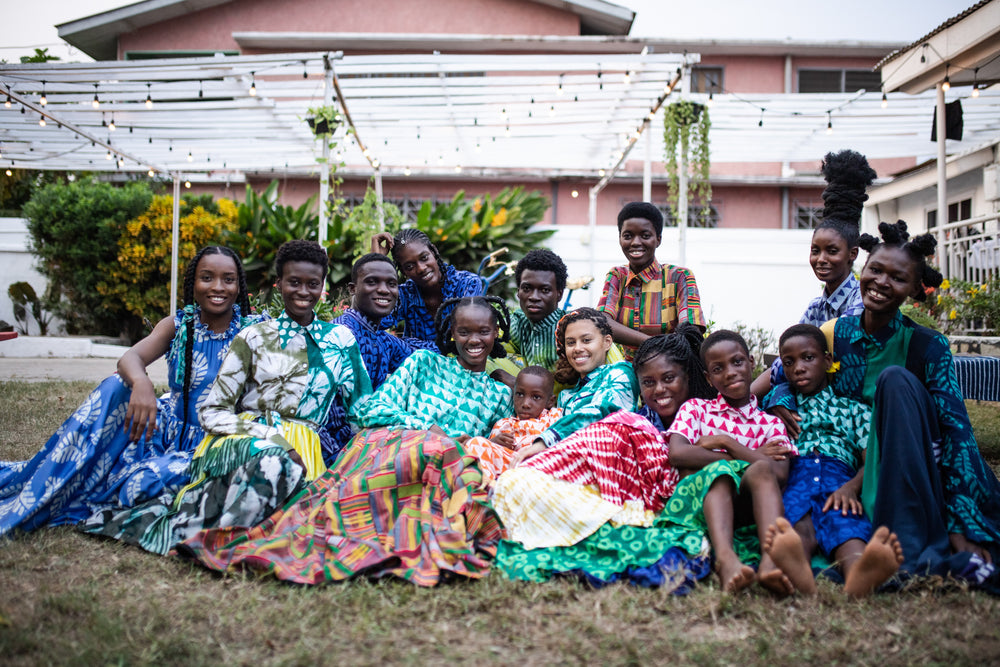Fashion Still Struggles to Address the Human Side of Sustainability, Experts Say

Too often, people are left out of the conversation when it comes to fashion’s impact on the planet. That’s according to experts who spoke about the human side of sustainability at Sourcing Journal’s summit last week.
Abrima Erwiah, founding director of the Gromek Institute for Fashion Business, co-founded fashion brand and social enterprise Studio 189 with actor Rosario Dawson in 2013 with this issue in mind. The lifestyle label sells artisanal clothing and accessories made primarily in Ghana, supporting community-led projects across the continent.
According to Erwiah, the profits generated from products made with traditional techniques like natural indigo dyeing, hand-batik and kente weaving help bolster educational efforts and skills training, while also creating jobs. Studio 189 has also collaborated with brands like J.Crew, Aqua, Lexus, Fendi, Nike, Opening Ceremony, Yoox Net a Porter and luxury fashion firm LVMH.
“I was working for different luxury companies and something that I really liked about it was seeing second- and third-generation artisans, and understanding where things come from and the pride and the dignity of making and creating,” the Hermès and Bottega Veneta veteran said. But when she visited the sourcing locales for those products, she recognized that there were “so many people that were cut out of the system and cut out of the conversations around supply chains.”
There is a thoroughly ingrained disconnect between those who design, market and ultimately profit from fashion and the people who actually make clothes, Erwiah explained.
A trip with co-founder Dawson to the Democratic Republic of the Congo for the opening of City of Joy, a leadership center for victims of sexual violence, illuminated some of the on-the-ground challenges faced by marginalized and underserved communities. But Erwiah also said the experience underscored how providing women with a market for their work could better society as a whole. One job could feed a family, or even allow them to purchase land.
Studio 189 has developed into a strong platform for empowering women. Now in its 11th year, it has demonstrated its efficacy in promoting that goal. However, Erwiah said she learned some unexpected lessons while growing the business. “I thought I had these great ideas and I was going to go top down and implement something,” she said. But she ended up realizing “that real change starts from the bottom up, and it has to be community led and it has to be based on what people need.”
The idea that foreign influence, however well-intentioned, could “save” or “fix” a community is a “throwback of colonialism” that Erwiah said she even bought into herself for some time. “But the reality is, you can’t expect that,” she said. “It’s about creating the space and the tools to allow people to do it themselves. And most importantly… growing voices in those communities.”
New Standard Institute founder Maxine Bedat said the think tank’s goal is to use data and research to push for accountability in the fashion industry. Brands have a pivotal role to play and haven’t pulled their weight for years, largely because margin concerns have outweighed the desire to see fairness and equity in the supply chain, she said.
“We’ve seen that for well over a decade that voluntary, multi-stakeholder initiatives are not leading to the results that we want,” Bedat said. “They are necessary but not sufficient. They’re a good place to connect, but we need to as an industry all be at the table together and make collective investments, so that we’re not leaving companies to go bankrupt, so that the initiatives are actually having the results that we want.”
Textile recycling innovator Renewcell’s recent bankruptcy announcement continues to loom large, a specter of the industry’s failure to come together in the fight for sustainability.
Regulation may be the most effective way to drive progress, Bedat believes. The New Standard Institute is a champion of the Fashion Sustainability and Social Accountability Act, known colloquially as the Fashion Act. The proposed legislation would require any $100-million-plus global apparel or footwear enterprise doing business in the state of New York to map their supply chain and remediate any adverse impacts to people or the environment.
A legally binding mandatory due diligence framework would compel companies to set science-based targets for emissions reduction, improve working conditions and disclose worker wages, among other provisions.
“This year and moving forward, it’s about having the hard conversations and coming together to understand that regulation can be our friend,” Bedat said.
“We are here to make things that are thoughtful that are implementable,” she added. “The Fashion Act is meant as a way to lift the floor for the industry so that you’re not competing on cutting corners, because that doesn’t serve anybody’s purpose or anybody’s bottom line at the end of the day.”
By




